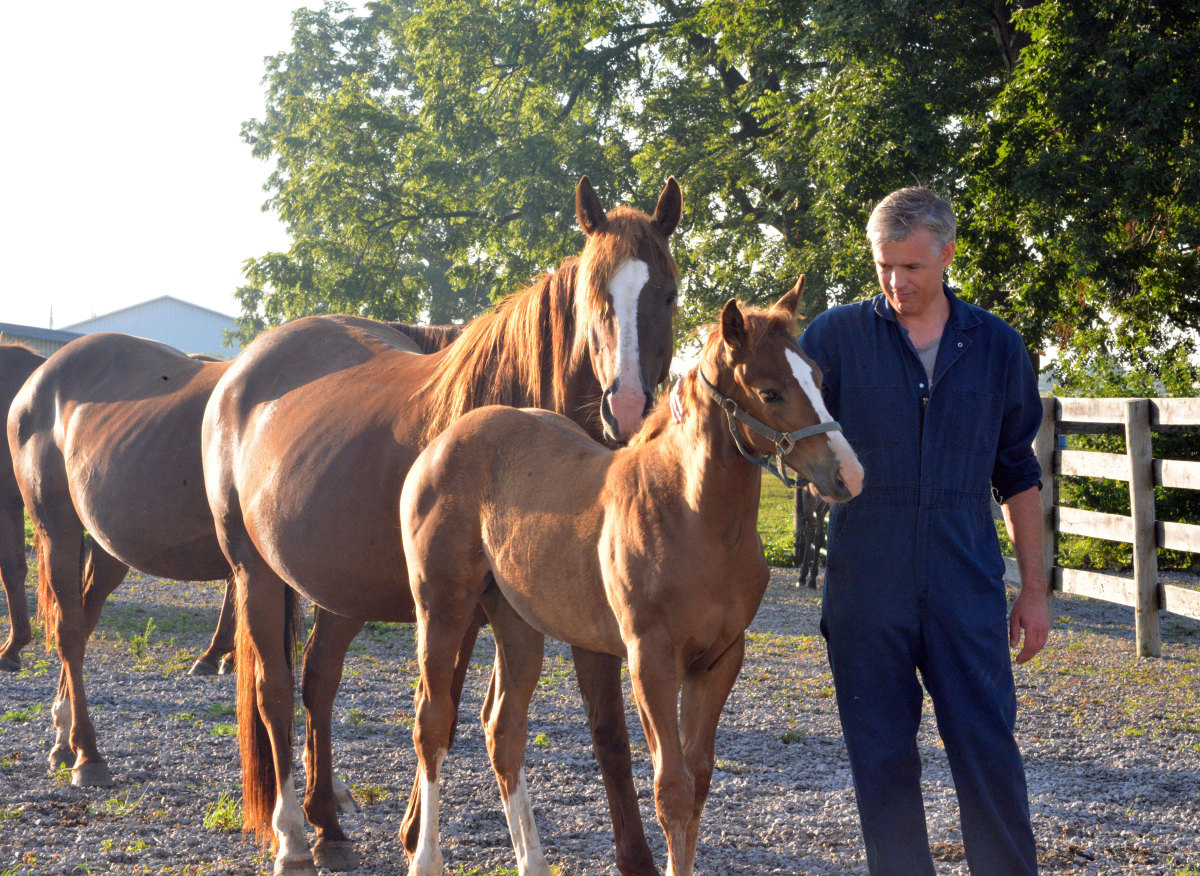
Welcome to EquiManagement’s podcast Disease Du Jour, where each episode will delve into the research and current best practices for a variety of equine health problems with industry experts.
Listen to or download episodes of Disease Du Jour on iTunes, SoundCloud or Stitcher.
This episode’s guest is Martin K. Nielsen, DVM, PhD, DipEVPC, DACVM, one of the world’s leading equine parasitology researchers. Nielsen has been an associate professor at the University of Kentucky’s Maxwell H. Gluck Equine Research Center since 2011.
Nielsen received his DVM in 2001 from The Royal Veterinary and Agricultural University in Denmark. He received his PhD in 2007 from the University of Copenhagen. In 2011, he was Board certified as Diplomate of the European Veterinary Parasitology College (DipEVPC), and in 2013, he was Board certified as Diplomate of the American College of Veterinary Microbiologists (DACVM).
After graduating vet school, Nielsen worked as a clinical veterinarian in the large animal hospital at The Royal Veterinary and Agricultural University in Denmark. From late 2001 until 2004 he was a practicing private veterinarian in Denmark.
Following his PhD work at the University of Copenhagen, Nielsen worked in various positions at that institution prior to coming to the University of Kentucky. From 2009-2011, Nielsen was the leader of the large animal clinical service and research laboratory, and from 2007-2011, he was an Assistant Professor at the University of Copenhagen.
Nielsen has received numerous awards and honors, and he has authored or co-authored five book chapters.
Topics included in this discussion include the value of checking efficacy of dewormers; the evolution of parasites and the science surrounding them; recent papers on parasite modeling; evaluating parasite control programs, combination deworming practices and the science behind them—good and bad.
Previous episodes of Disease Du Jour
Episode 6 – Peter Timoney, MVB, MS, PhD, FRCVS, the Frederick Van Lennep Chair in Equine Veterinary Science and a Professor at the Gluck Equine Research Center at the University of Kentucky. TImoney discusses equine infectious diseases, with a focus on factors that compromise normal pregnancy and the adolescent horse.
Episode 5 – Robert Holland, DVM, PhD, a private practice veterinarian in the Central Kentucky area focusing on respiratory problems and infectious diseases, talks about Respiratory Tips from the Field.
Episode 4 – Bonnie Barr, VMD, DACVIM, an internal medicine specialist at Rood and Riddle Equine Hospital in Kentucky, talks about common neonatal problems in this podcast.
Episode 3 – Tom Chambers, PhD, who heads the OIE Reference Laboratory for equine influenza at the University of Kentucky, discusses equine influenza.
Episode 2 – Tom Riddle, DVM, DACT (hon), a founding partner of Rood and Riddle Equine Hospital in Lexington, Kentucky, discusses breeding season procedures that he has developed over his decades-long practice.
Episode 1 – Steve Reed, DVM, DACVIM, of Rood and Riddle Equine Hospital in Lexington, Kentucky, discusses equine herpesvirus and equine herpesvirus myeloencephalopathy.
Listen to or download episodes of Disease Du Jour on iTunes, SoundCloud or Stitcher.








